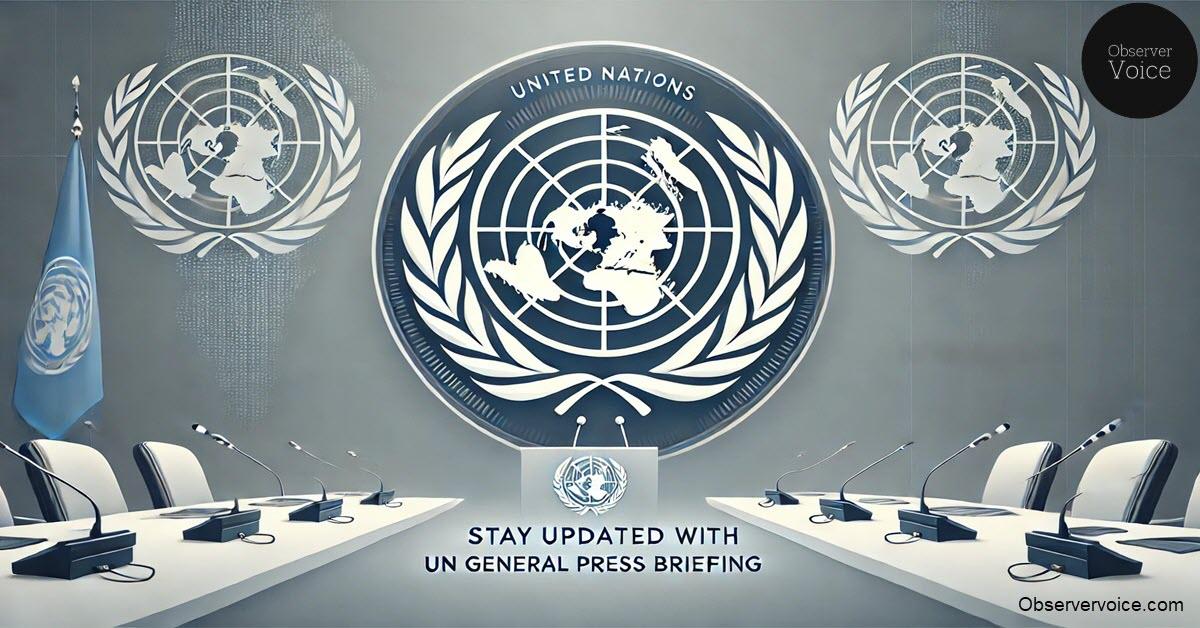Security Council Briefing Highlights Ongoing Challenges

The United Nations Security Council convened recently to hear from five outgoing Chairs of its subsidiary bodies. These Chairs provided insights into their work and the challenges that lie ahead. Despite significant efforts over the past two years, they emphasized that much remains to be done. The meeting focused on nine subsidiary bodies, including committees and working groups addressing critical issues such as Libya, the Democratic People’s Republic of Korea (DPRK), and terrorist organizations like Da’esh, Al-Qaida, and Al-Shabaab. The discussions also touched on the Council’s working methods, children’s rights in armed conflict, conflict prevention in Africa, and non-proliferation efforts.
Libya and Al-Shabaab: Complex Challenges Ahead
Yamazaki Kazuyuki from Japan was the first to address the Council. He chairs the Committee concerning Libya, the Committee on Al-Shabaab, and the Informal Working Group on Documentation and Other Procedural Questions. Kazuyuki described the Libya Committee as one of the most active Sanctions Committees. He noted that the politically complex environment in Libya influences the Committee’s work. The sanctions imposed, particularly the asset freeze, aim to benefit the Libyan people in the long run. However, he acknowledged that the Committee struggles with enforcing the arms embargo, travel bans, and preventing illicit petroleum exports. He urged Member States to fulfill their obligations regarding these sanctions.
Kazuyuki also highlighted the recent lifting of the arms embargo on Somalia’s Government through resolution 2713 (2023). While the Council recognized the Government’s efforts to manage arms better, he expressed concern over the ongoing flow of weapons to Al-Shabaab, which violates the embargo. On the Informal Working Group’s activities, he mentioned a recent agreement to consolidate all presidential notes on Council working methods into a single document. This effort aims to improve the Council’s operational efficiency, with Japan contributing to the creation of updated handbooks.
Addressing Terrorism and Protecting Children
Francesca Maria Gatt from Malta followed with her briefing on the Committee concerning Da’esh and Al-Qaida, as well as the Working Group on Children and Armed Conflict. She emphasized the ongoing relevance of the 1267 Committee, noting that many Member States face heightened risks from terrorism. However, she pointed out that progress in adopting new designations has been limited. Gatt attributed this to hesitance in utilizing the sanctions regime and disagreements over designations. She believes there is still constructive work to be done in countering terrorism through sanctions.
Regarding the Working Group on Children and Armed Conflict, Gatt highlighted the alarming disregard for children’s rights in conflict zones. Despite these challenges, the Committee has conducted numerous meetings and consultations, adopting conclusions on multiple country-specific situations. Their focus remains on building consensus-driven conclusions that can significantly improve the lives of children affected by armed conflict. Gatt’s commitment to this cause underscores the importance of protecting vulnerable populations in times of crisis.
Conflict Prevention in Africa: A Collaborative Approach
Pedro Comissário Afonso from Mozambique addressed the Council next, focusing on the Ad Hoc Working Group on Conflict Prevention and Resolution in Africa. He emphasized the need for a strong partnership between the UN Security Council and the African Union Peace and Security Council. Afonso highlighted the principle of “African solutions for African challenges” as a cornerstone of their approach. The Working Group aims to amplify Africa’s voice and broaden discussions on emerging challenges and peacekeeping.
Afonso noted that the Group has made strides in ensuring predictable financing for African Union peace-support operations. As a penholder of resolution 2719 (2023), Mozambique has facilitated discussions that shape this critical instrument. He also mentioned the establishment of expert-level discussions ahead of consultative meetings, which aim to create space for dialogue. Afonso proposed several initiatives to enhance the Working Group’s effectiveness, including informal mechanisms to monitor joint communiqués and increased inter-Council engagements.
Non-Proliferation and the Situation in Afghanistan
Andrés Efren Montalvo Sosa from Ecuador addressed the Council regarding non-proliferation and the Taliban. He explained that the Committee’s primary task is to manage travel-ban exemptions for sanctioned Taliban members. While the Committee has approved requests that contribute to peace in Afghanistan, he expressed concerns about unauthorized travel and incomplete requests. Montalvo emphasized the need for adherence to the Committee’s guidelines.
He also discussed the complex situation in Afghanistan, noting that the sanctions regime must remain effective in addressing existing threats. However, he acknowledged that political changes may render some guidelines less applicable. Montalvo suggested that the Committee hold open briefings and workshops to enhance understanding and compliance with non-proliferation efforts. He underscored the importance of moving forward with the effective implementation of sanctions to maintain global security.
Observer Voice is the one stop site for National, International news, Sports, Editor’s Choice, Art/culture contents, Quotes and much more. We also cover historical contents. Historical contents includes World History, Indian History, and what happened today. The website also covers Entertainment across the India and World.

